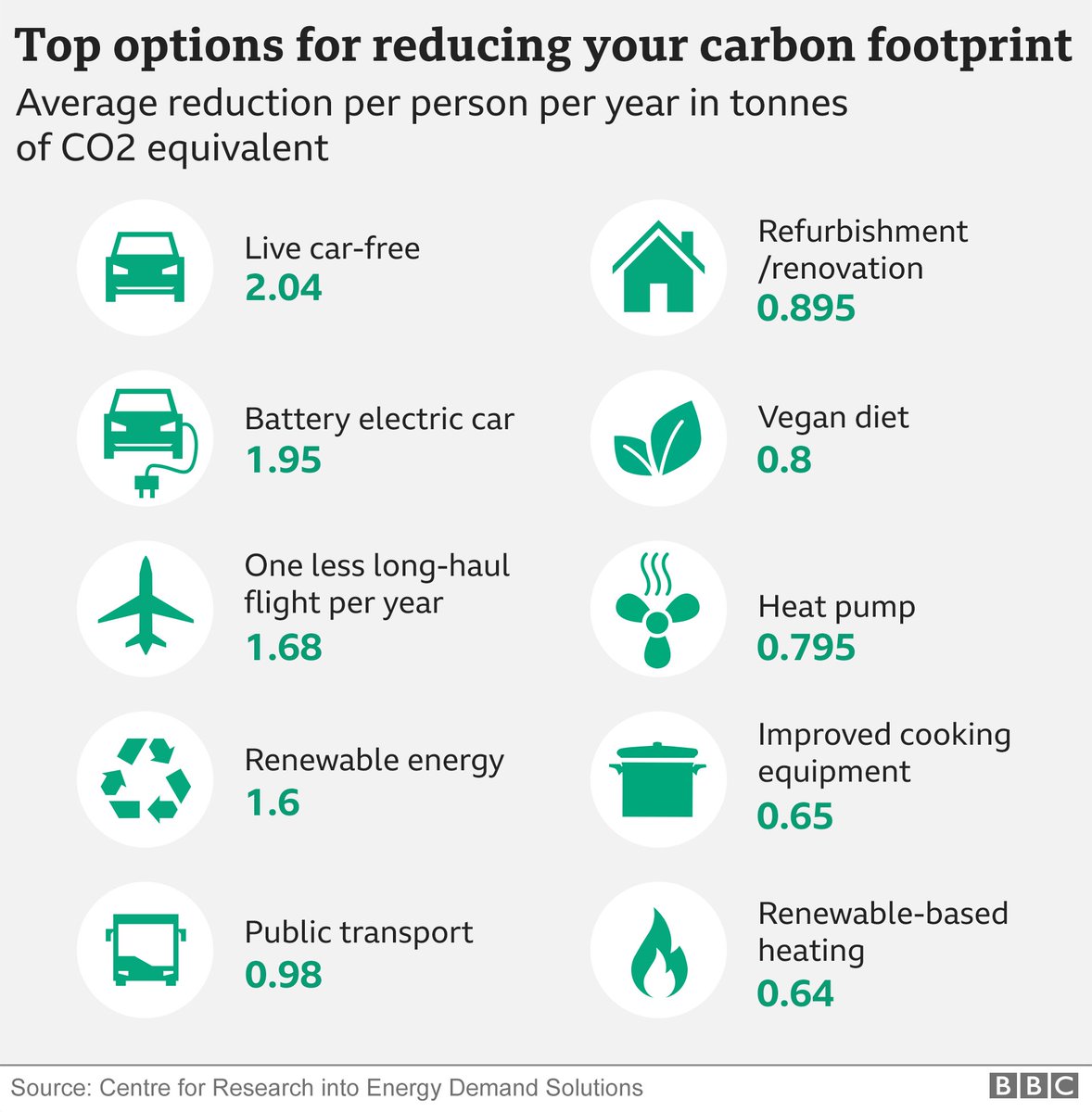Interesting report - great to see climate mitigating measures in proper context. The changes to our working, driving and flying habits during #lockdown will have significant positive effects on #ClimateChange if we maintain them to some degree once we’re back to normal. 1/5 https://twitter.com/acquinney/status/1264699433805119490">https://twitter.com/acquinney...
Going #vegan doesn’t have the massive impact that many would claim - but worth bearing some other points in mind too:
1) Global beef production and UK beef production are *not* identical. There is no such thing as a global average beef system! 2/5
1) Global beef production and UK beef production are *not* identical. There is no such thing as a global average beef system! 2/5
2) Carbon sequestration is not accounted for in the studies cited by the paper. This means ruminant GHG emissions are overestimated.
3) The paper uses GWP100 rather than the more accurate GWP*, so GHG emissions from ruminant systems are overestimated. 3/5
3) The paper uses GWP100 rather than the more accurate GWP*, so GHG emissions from ruminant systems are overestimated. 3/5
4) The primary purpose of eating meat, dairy or eggs is to supply protein and micronutrients – the lowest GHG foods that we can eat are actually sugars and syrups, but those would have significant knock-on health consequences if they formed the basis of a “low carbon” diet. 4/5
5) Finally, Figure 7 in the original paper shows that having a vegan diet is equivalent, in GHG mitigation terms, to not owning a pet. Interesting that this hasn’t been picked up by the BBC? #ByeByeFido may not be the headline they’re looking for?  https://abs.twimg.com/emoji/v2/... draggable="false" alt="😉" title="Winking face" aria-label="Emoji: Winking face"> 5/5 https://www.researchgate.net/profile/Dominik_Wiedenhofer/publication/340370915_Quantifying_the_potential_for_climate_change_mitigation_of_consumption_options/links/5e8b0a93299bf13079804fc1/Quantifying-the-potential-for-climate-change-mitigation-of-consumption-options.pdf?origin=publication_detail">https://www.researchgate.net/profile/D...
https://abs.twimg.com/emoji/v2/... draggable="false" alt="😉" title="Winking face" aria-label="Emoji: Winking face"> 5/5 https://www.researchgate.net/profile/Dominik_Wiedenhofer/publication/340370915_Quantifying_the_potential_for_climate_change_mitigation_of_consumption_options/links/5e8b0a93299bf13079804fc1/Quantifying-the-potential-for-climate-change-mitigation-of-consumption-options.pdf?origin=publication_detail">https://www.researchgate.net/profile/D...

 Read on Twitter
Read on Twitter



